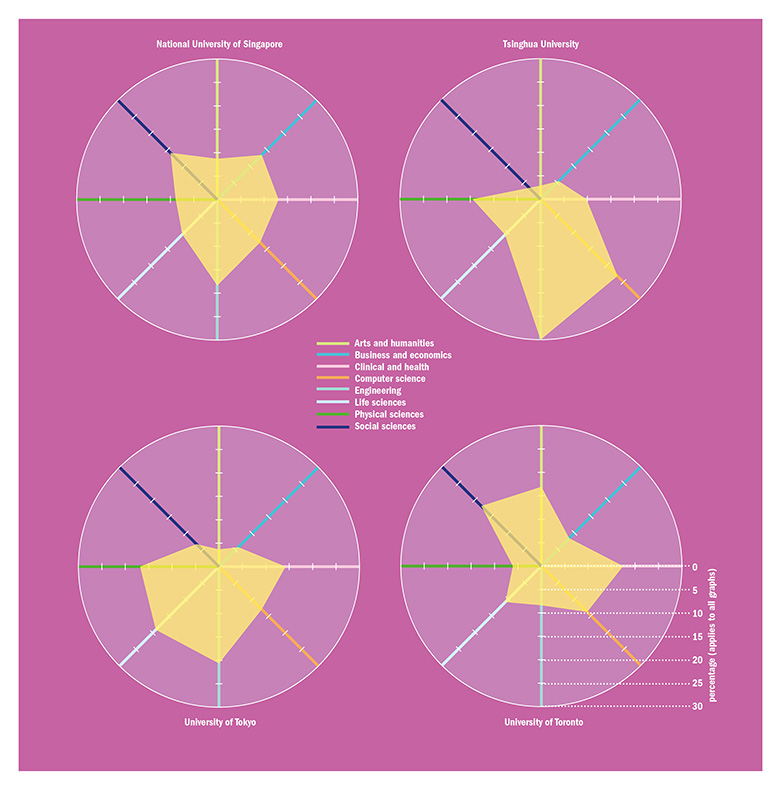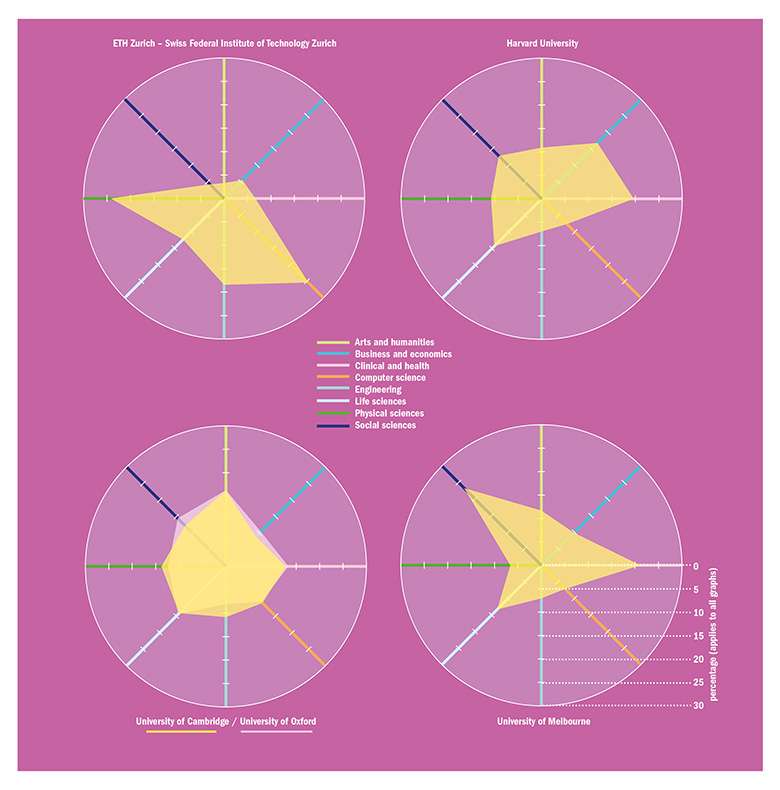Browse the full Times Higher Education World Reputation Rankings 2017 results
These graphs show the proportion of scholars from different subject areas who voted for the most prestigious universities in eight countries. The results show the disciplines that leading academics perceive to be the strongest in each institution.
For example, while the universities of Oxford and Cambridge have similar reputation profiles and are perceived to be well-rounded institutions, receiving a relatively equal number of votes from scholars across the eight broad subject areas, Tsinghua University’s strengths are considered to be skewed towards engineering and computer science. The Chinese institution had few votes from academics in arts and humanities and social sciences.
Meanwhile, the top brands in Australia and Canada are deemed to have similar research and teaching strengths. The universities of Melbourne and Toronto are both perceived to be strongest in social sciences and clinical and health subjects and weakest in the physical sciences.
The proportion of votes from each subject area has been adjusted to reflect the differences in the number of voters.
Access the full THE World Reputation Rankings 2017 digital supplement
后记
Print headline: Expert opinion, subject by subject






